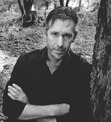The Act of Writing Stuff...
It has been the year of the screen for me. It’s a great delight to know that The Broken Ones released in North America well, and truly exciting to receive notes from readers who’ve enjoyed it. But 2012 has been a year in which I seem, by hook or crook, to have become immersed again in working up story for the screen.
I don’t know how it quite happened, but I suspect there was some subconscious nudging at work. After final edits on The Broken Ones, and commencing work on my third novel, I know I felt a desire to do some more stuff for the screen. This was manifest by wanting badly not to write at all, but to sit and watch quality stuff like Game of Thrones and Take Shelter. It may be a case of be careful what you wish for, because you might just get it. Somehow, I started getting involved in the development of a number of really exciting screen projects.
I was invited by the cleverheads at Hoodlum Entertainment (who’ve done some spectacular work for shows like Lost, Flash Forward and Spooks, and movies like Salt) to do some story development, which is great fun. That’s led to a number of new ventures with them, including the development of a crime series and the creation of a screen adaptation of The Dead Path, which I will be writing. I was invited to write a comedy feature for uber-dedicated producer Angela Walsh (which was a refreshing dip into waters where no one dies, confronts monsters, or is tormented by spirits) and to adapt for the screen another Australian author’s comedy novel. But my love for mystery and ghosts seems to orbit about me like cartoon birds around characters struck by mallets… and I will also be involved in helping develop another screenwriter’s ghost story feature. In between all these commitments, I’ve been lucky enough to work up some interesting corporate work for Australia Post and the Australian Psychological Society, and to bang out a 10,000 word short story.
I’ve realised – and it’s taken me a long time to do so, because I is well stupid – that there really isn’t a lot of difference between writing for the novel and writing for the screen. Sure, there are differences in the way the forms are read, but whether it’s a novel in a bookstore or a screenplay on a producer’s desk, once a reader picks up the piece, you want her or him to be hooked and just keep turning the damned pages. And while novels allow their writers to show a bit more style and explore in a bit more depth, and while screenplays demand specific formatting and present tense, the pressure is on the writer in both forums to bring game and find ways to keep those pages flipping. To make the story compelling, enjoyable, and most of all, surprising. Because that's what we want, isn't it? There's nothing worse than reading a book or watching a TV show and predicting the exact next line or dialogue or plot point.
At lunchtimes, I like to eat my tin of Stagg chili (yum; I love the gear. This is an unpaid endorsement, but Stagg? Feel free to send me some cases) and I like to watch either Ted Talks or reruns of Inside the Actor’s Studio – that great series hosted by James Lipton. Hearing accomplished actors speaking about their journeys has driven home to me that the craft of acting is very similar to the crafts of novel- and screenwriting. They’re all story telling (like I said, I can be quite stupid). And acting and writing only truly work when the viewer is transported utterly into a realm of belief – belief that the actor is actually a completely different human, or that the world in the novel is alive and its characters are, too, or that the screenplay is actually projecting, real time, behind the reader’s eyes.
Many of the actors talk about what acting is, and mostly, it is this: solving problems, and making choices.
And that’s what writing is, too. Choosing characters and problems for them to solve.
But not solving problems easily – in both acting and writing, problems have to be solved the hard way. An easy journey doesn’t make for great drama; for drama, there has to be conflict, internal and external. Problems have to be profound enough to challenge characters completely, to test their mettle. And so the choices that actors and writers make have to be surprising. As Mamet once said (and I paraphrase): if you can think up plot off the top of your head, so can your audience. And that is not what the punters pay for; we rightly expect more than that. Good acting and good writing are hard work because they have to seem effortless. The problems character face have to be at once instantly understandable, yet something we have never quite encountered before – and their resolutions have to be both unquestionable and unpredictable.
And when we watch or read, we don't see the hard work that's gone into creating those problems and making those choices; when we watch, we simply enjoy the ride. That’s what we reward our entertainers for: taking us by the hand to places we’ve never quite been, and returning us safely home again, feeling a bit smarter or a bit emotionally richer for the journey.
So, as I continue working up my third novel, writing a screen adaptation of my first, and hopefully getting closer to seeing my debut crime series on the TV screen, I hope I can keep that ethic in mind: surprising, yet inevitable; new, and true. And I hope I can broaden my lunch diet beyond chili...



